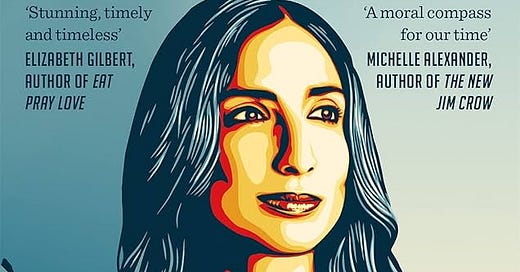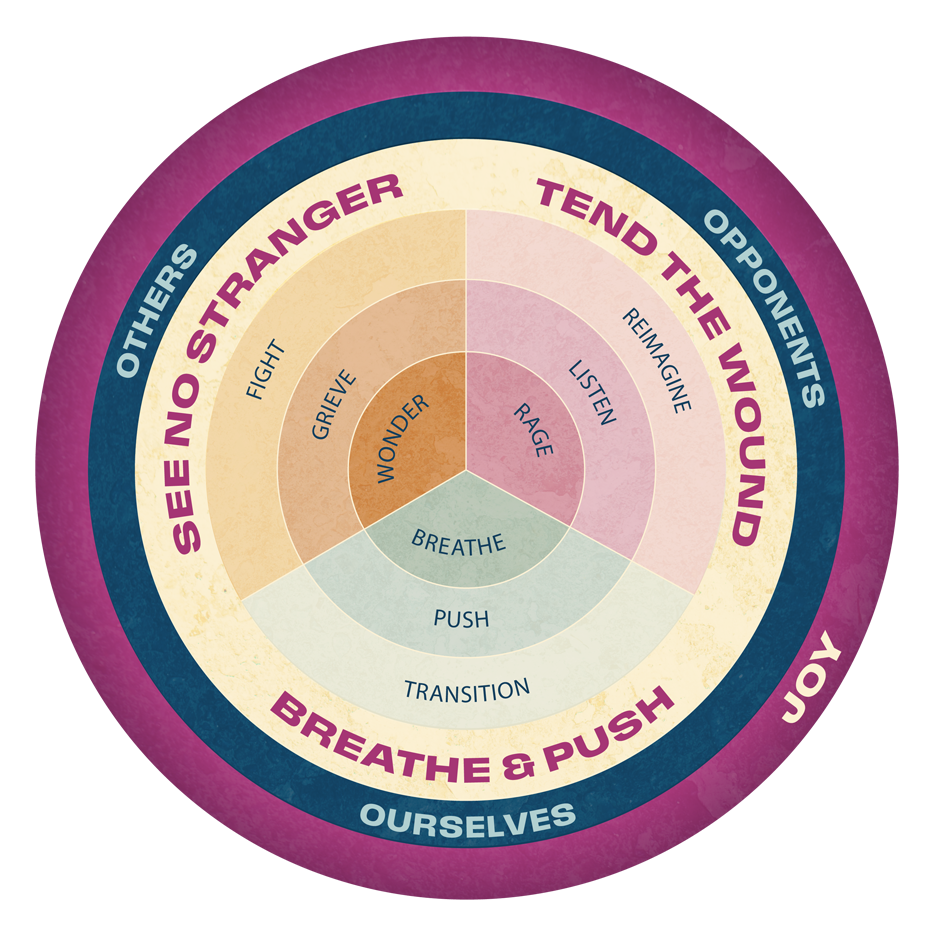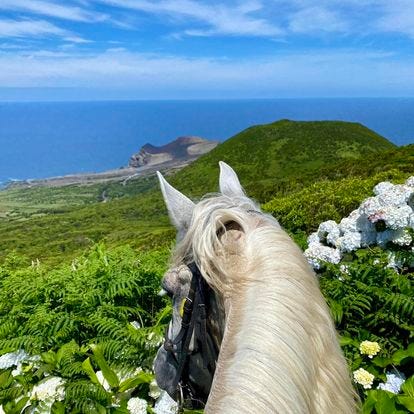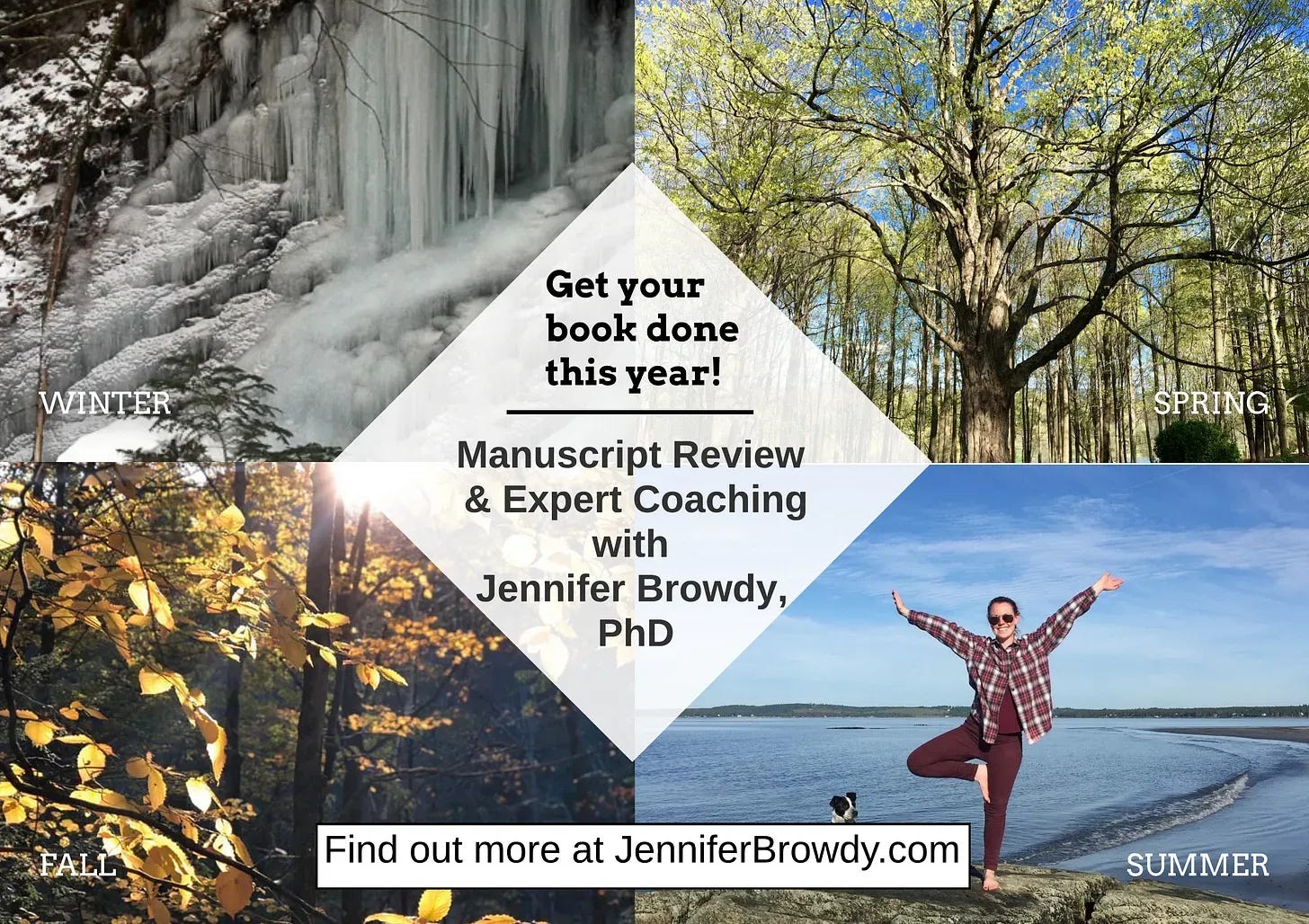If ever there was a time for revolutionary love...that time is now
Learning from Valarie Kaur in a time of trouble
Greetings, friends.
In my global online Open Society University Network class this semester, with students from Afghanistan, Myanmar, Tajikistan, Russia, Bangladesh and the US, we are reading what I consider to be one of the finest "writing to right the world" memoirs by a woman leader, See No Stranger by Valarie Kaur. I want to share some of her ideas with you, or, if you have already read the book, remind you of her "revolutionary love" framework, which I believe we truly need in these fraught times.
In her memoir, Kaur masterfully braids together her personal story with the politics of her time and place. This is a near-perfect model of what I call "purposeful memoir," and Kaur is indeed a "worldwright," a writer whose words lead us to actions that can make our world better.
In brief, she grew up as the daughter of a Sikh farmer in California, whose father had come to the US from India as a young man. She tells stories of being discriminated against by classmates as a girl, for her brown skin and non-Christian religion, and how her grandfather always sang and quoted from the Sikh scriptures about the importance of being brave, "not abandoning her post" no matter what trials she faced.
She goes to Stanford for college and is in her junior year when 9/11 happens and suddenly there is a dramatic uptick in hate crimes against the Sikh community. She drives across country with her cousin and a video camera, talking with the families of victims of hate crimes, and documenting the interviews in footage that would eventually become an important documentary film.
A theology degree from Harvard Divinity School and a law degree from Yale University follow, and she becomes an outspoken civil rights activist, together with the man who will become her husband.
But what is outstanding about her memoir is that it is not just an expansion of her resume. Kaur shares a deeper, personal story of how early wounds, both physical and emotional, continue to haunt her as "her body keeps the score," and how out of tremendous personal and political suffering, she learns to embrace what she comes to call "the path of revolutionary love."
Her memoir is organized into three sections: Loving Others, Loving Opponents, and Loving Ourselves. Within these three sections are three chapters that tell her personal story against the larger backdrop of her time and place, with evocative titles: Wonder, Grieve, Fight, Rage, Listen, Reimagine, Breathe, Push, Transition, Joy.
She weaves all of this together into what she calls the "revolutionary love compass," which she offers as a tool to anyone who cares to make a positive difference in the world.
From the perspective of writing to right the world, Kaur shows us how important storytelling is to whatever larger agenda we may have of making the world better with our writing.
The revolutionary love compass would not have nearly as much impact or traction if it was simply laid out like a toolkit. Kaur's open-hearted, often heart-wrenching stories bring each element of the compass alive, showing how she comes to understand the importance of revolutionary love to heal the wounds of self and society, and reknit broken people into communities of mutual respect and care.
For me and my students, the idea of loving one's opponents is especially hard to imagine.
Can I love the Taliban who refuses to let me continue my education? Can I love the military commanders who have thrown my country into chaos? In the US, students ask, can I love a political candidate who sows hatred, lies and discord wherever he goes?
Kaur shows us, through the story of trying to talk with the murderer of a close family friend, that such dialogues have the power to increase mutual understanding on both sides.
And we in the US know what happens when such conversations are not attempted: both sides barricade themselves behind walls of disinformation and hatred, which almost inevitably lead to violence.
In the final section of the memoir, Loving Ourselves, Kaur talks about the toll such work takes on our bodies and psyches, and argues passionately, using her own story as a model, that activists must learn to take care of ourselves, so that we can take care of others.
"I had been made to believe that overwork was the only way to make a difference. I had come to measure my sense of worth by how much I produced, how well I responded, and how quickly. I had worked for so long, and so hard, and at such great speeds, that I had become accustomed to breathlessness. I could not remember the last time I had a long night of rest. Or gazed at the night sky. Or danced. I told myself that it was for good reason, that the need was so great, and our work too important. Perhaps you too have felt this way.
This is what I want to tell you: You don't have to make yourself suffer in order to serve. You don't have to grind your bones into the ground. You don't have to cut your life up into pieces and give yourself away until there is nothing left. You belong to a community and a broader movement. Your life has value. We need you alive. We need you to last. You will not last if you are not breathing" (Kaur, See No Stranger, 247).
In the final chapter of her memoir, published in 2021 after the Covid pandemic had begun, there is a lot of darkness in the world.
But Kaur reminds us that if we see the world through a feminine lens, we can understand our pain as part of the necessary pain of transition, on the way to the birth of a new world.
"Is this is the darkness of the tomb or the darkness of the womb?" Kaur asks poignantly in her powerful TED talk, which has been viewed more than three million times.
"Progress during birthing labor is cyclical, not linear. It is a series of expansions and contractions, and each turn through the cycle brings us closer to what is being born. I see this pattern through U.S. history: A generation fought to abolish slavery and free people from bondage, but it was followed by a Jim Crow system. Another generation built a civil rights movement to end segregation, but it was followed by criminal justice, immigration, and national security systems that continue to punish black and brown people. The labor is ongoing, the injustice relentless. But each time people organized, each turn through the cycle opened a little more space for equality and justice. It also created ancestral memory. We carry the memory of movements that came before us. Like the body in labor, we have gained more embodied knowledge about what to do when the crises come. Even when the crises are unprecedented, we can still turn to the wisdom of our ancestors for how to labor--to wonder, to grieve, to fight, to rage, to listen, to reimagine, to breathe and to push, and to find the bravery we need for transition. It is our task to innovate and apply these practices in the new reality we find ourselves in" (Kaur, See No Stranger, 287).
Loving Others, Loving Opponents and Loving Ourselves means practicing a form of radical solidarity, in the service of a deeply held vision of the better world that is possible.
You don't have to like your opponent to recognize them as a part of you, a thread in the weave of our current reality, which we have all had a hand in creating.
Hating only hardens into more hate.
Love just might create more love.
Valarie Kaur is currently out on a road trip across the USA, hosting public gatherings that create space for love in our very fraught political landscape.
With her book, she has modeled "writing to right the world," and with her revolutionary love compass, she has given us valuable tools for actualizing our dreams in difficult realities.
I imagine a world where each of us feels empowered to breathe, push, and bring our version of a better world into being.
Now is our time. We cannot afford to wait.
Yours in the spirit of revolutionary love,
Jennifer
PS: I am taking Valarie Kaur's call to radical self-care to heart in creating opportunities for small groups of writers to come together in beautiful places to relax, restore and stimulate our creativity. Come with me on one of my upcoming trips to the Azores, Iceland or Italy; write online with me at the Bioneers in March; or write in person with me at the Berkshire Botanical Garden in February, Rowe Retreat Center in May, or the Lunenburg Center for the Arts in July.
My 2025 International Writing Retreat Schedule
Because we can't stay glued to our desks all the time!
Come get away from your screen and give your creative spirit a much-needed boost on this Riding & Writing trip to the Azores, January 4 - 11, 2025.
Click here or the photo below to find out all the details about this trip to the magnificent Patio Ecolodge on Faial Island, Portugal. Reserve your spot now!
Find out about my other upcoming trips here.
Friends, it’s my pleasure and my passion to support you as we stretch towards living our lives creatively and to the fullest.
The motto of my author consulting business is “Writing to Right the World,” and the motto of my book publishing business, Green Fire Press, is “Books that Make the World Better.”
If these intentions resonate with you and you are working on a book, or have one in mind, don’t hesitate to get in touch!
Supporting creative people bring their work more strongly out into the world is one way I try to make the world better.










Hi Jennifer, This column resonates with me so deeply. Very early on 11/6, I returned to a poem I wrote almost 10 years ago after another event that shook my foundations and left me wondering how to live in true to my values, no matter what happens in the world. Here it is:
WE
Dear sisters and brothers on Planet Earth,
I love you.
Every single one of you.
I don't care what you believe.
I don't care what group you belong to.
I don't care if you agree with anything I think, I say, I believe.
The one thing I know for sure about you, about each and every one of you, is that we are living on this earth together right now.
You may be just a few minutes old, or maybe over 100 years old, taking your very first breaths, or your very last ones.
We all come from the same source and have whirled and twirled our way through the universe into bodies on this planet right now.
We are undeniably connected, not just with each other, but with the past and the future and the source of all life.
We are all tied to the most beautiful, selfless acts in human history
And
We are all tied to the most, horrible, cruel acts in human history.
We are all guilty
And
We are all innocent.
We have all been harmed by our species' tendency to turn to violence as a solution.
We have all been enriched by our species' tendency to seek peace.
Each of us has the potential to love, to hate, to nurture life and to take life.
We are all lost.
But we can be found.
We have all been harmed by thousands of years of history that told us we are separate from each other.
We can find each other with love, forgiveness, compassion, and respect for the amazing planet that sustains us all.
It is OUR home.
We live here together.
No matter what we believe.
My question for you, my beloved sisters and brothers, is simple.
What kind of life do you want for the children of the world?
For your children, grandchildren, great grandchildren and for the generations that follow?
Do you want their lives to be framed
By war,
Vengeance,
Fear,
Ideological conflict,
Separateness and hate?
I do not want this future for my children and grandchildren or anyone else's.
So, I have no choice, but to renounce the illusion that we are separate.
Right now, the only way I know how to do that is to try to rise above my inclinations ~
Horror,
Fear,
Outrage,
Judgment,
Feelings of separateness.
Instead,
I will love without ceasing.
I will pry my heart open to give and receive love.
I don't know what else to do.
I am connected to you, dear brother and sister.
Please accept my love.
It is the most valuable gift I have to give you.
Jan Krause Greene
Thank you for introducing me to Valerie Kaur. I wonder if you've run across Gregory Boyle, a Jesuit priest in LA who works with addicts and has written several wonderful books about the power of love to heal. I read "The Whole Language" six months ago and it still lives with me.